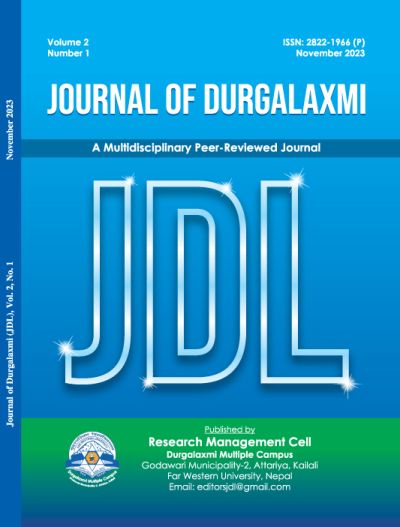Everyday Racism and Social Representations in Faulkner's Dry September: A Critical Discourse Analysis
DOI:
https://doi.org/10.3126/jdl.v2i1.65397Keywords:
Critical Discourse Analysis (CDA), Dry September, everyday racism, sociocognition, rationalizationAbstract
This paper presents a critical analysis of racial discourse and social representations of people in everyday situations. It begins with a brief discussion of how everyday racism differs from the general understanding of racism. Relying on the review of some previous works on racism, van Dijk's “socio-cognitive model” and some discursive mechanisms (rationalization, emotionalization, and stereotypization) by which racism can be initiated, practiced, maintained, or terminated are discussed and used as the conceptual framework to analyze the elite discourse. This article employs Critical Discourse Analysis (CDA) as a research tool to unravel the complex webs of racial associations and representations that go into everyday communication with illustration and evidence from William Faulkner's short story, “Dry September.” The results show that the racist people use discourse as a means of promoting their supremacy and group interests, and use it to legitimate their courses of action as well. CDA, as the sole non-recursive methodology, can reveal how the dominant group frames social inequalities using various discursive strategies and maintains power and privilege over the vulnerable one.
Downloads
Downloads
Published
How to Cite
Issue
Section
License
Copyright (c) 2023 The Author(s)

This work is licensed under a Creative Commons Attribution-NonCommercial 4.0 International License.
CC BY-NC: This license allows reusers to distribute, remix, adapt, and build upon the material in any medium or format for noncommercial purposes only, and only so long as attribution is given to the creator.




